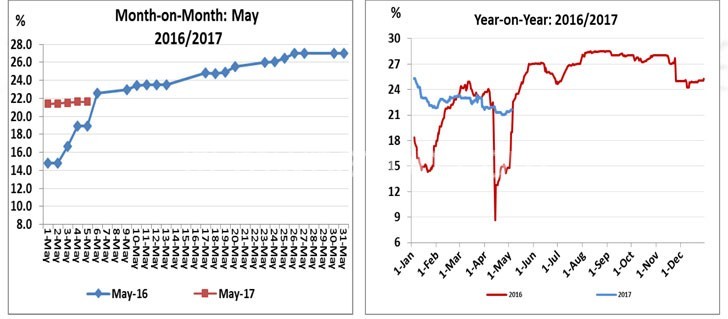Optimism on foreign exchange reserves
Some economists and analysts have backed governments’ projection that the level of foreign reserves will remain above three months of import cover this year.
The analysts say government has demonstrated efforts to retain the economy, but has also put in place sound structural reforms to anchor the reserves. 
The sentiments by the analysts come against the backdrop of President Peter Mutharika’s State of Nation Address (Sona) which was delivered in Parliament on Friday last week, in which the President, noted that the country though coming from a period of drought which heightened food imports, foreign exchange reserves have been maintained at three months of import cover.
Mutharika said it is expected that the current level of foreign reserves, coupled with increased production of legumes and the bringing back on track of the International Monetary Fund (IMF) programme, foreign exchange inflows will be boosted to anchor the stability of the local currency.
In response to an emailed questionnaire, one market analyst told Business Review that coupled with the World Bank’s approved $80 million (about K67 billion) credit to the Malawi Government for general budget support, it is possible to achieve the feat.
He said: “With the resumption of budgetary support to government, we see the country going even beyond three months of import cover.
“We can only ask government to improve on the fiscal management so as to achieve the feat but also to win further budgetary support and donor confidence. We should not get excited and go back to the old ways of doing things.”
Economic statistician, Alick Nyasulu, agreed with the analyst, saying the World Bank support will boost the reserves a development that might also lead to a strong kwacha
“World Bank is also balancing its lending approaches as its traditional market has become competitive with countries now fast looking East for infrastructure funding that had less stringent rules,” he said.
Explaining how government intends to achieve the feat, Secretary to the Treasury Ben Botolo said government is currently focusing on and encouraging diversification of foreign exchange earnings.
He said though tobacco brings in foreign exchange, the extent at which the cash crop has played a part in foreign reserves has been minimal of late; hence, looking at alternatives to boost the foreign reserves.
“We have tried to be in line with the IMF programme. Government has focused on the structural reforms to retain the economy, which was key among IMF requirements but also endeavoured to spend within the budget and maintain a tight monetary policy stance. We are hopeful that the IMF June verdict will be favourable.
“On the other hand, legumes demand has also been on the rise within and outside the country. For instance, right now people are demanding more soya. This is why we are hopeful that foreign reserves will maintain the current pace,” he said.
Malawi’s gross official reserves—a combination of official and private sector reserves— have been increasing in subsequent months.
Recent Reserve Bank of Malawi (RBM) Financial Market Development reports show a continued increase in reserves during the previous months to date.
RBM spokesperson Mbane Ngwira said in a recent interview the current position of foreign exchange reserves is on the back of a tight monetary policy.
He said: “We have been building our reserves to a certain level, say around three months or so. To achieve this, we set our target to have excess liquidity at zero because this is what brings about the demand for foreign exchange.”





